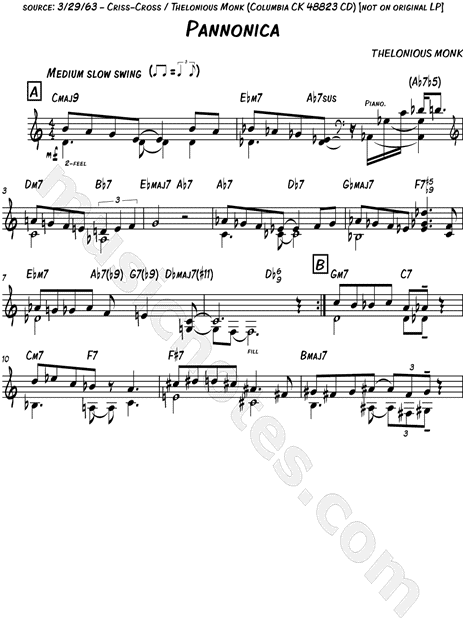

So what happened? Well, one of Monk’s biographers, Robin D. Bebop appears in the poster, and it is certainly not his name in the biggest font. He is clearly under Charlie and Dizzy’s influence by then. Just 2 years later, in 1950, Monk’s name appears on this poster. Of course, if Monk’s “modern music” really became widely known as “bebop,” then what happened? Which, to me, further asserts that Monk’s music has a certain intelligence behind it. It’s harder for people to understand bebop who don’t know music… You should always have melody in the piece,” He wants to avoid any chance that his music might be written off as nonsense.

I think Monk is trying to get people to understand how much thought and intention goes into his music. It doesn’t mean anything, is just scatting.” “I don’t like to think of my music as bebop-but as modern music. In the article, Monk is set in opposition to Dizzy Gillespie and Charlie Parker, and it starts out by a quote from Monk saying,

Considering that this month marks Monk’s centennial, I think that the Monk-centered theory deserves more examination.Ī notable article in The Chicago Defender on Mais titled “Creator Of “Be Bop” Objects To Name And Changes In His Style.” Already this Monk-centered theory is sounding fairly authoritative. However, a competing theory is that Thelonious Monk deserves a majority of the credit for the music we know today as bebop. As jazz came out of the blues and bebop came out of jazz, the story of a genre’s name always tends to tell me a lot about its birth.Ĭharlie Parker and Dizzy Gillespie are generally thought to have been the founding fathers of bebop. Who gets to decide the name of a genre? Should the artist or the consumers? The managers or the publishers? This question has constantly bothered me as we have looked at the racial influences put upon the blues and the traditions that have grown out of it.


 0 kommentar(er)
0 kommentar(er)
